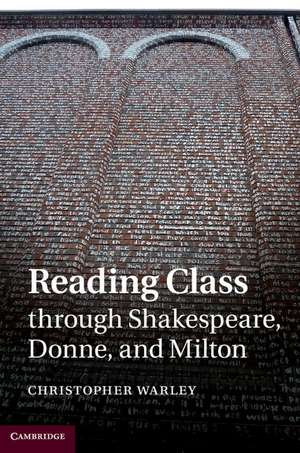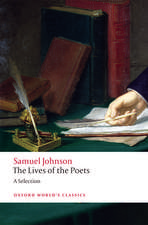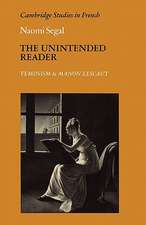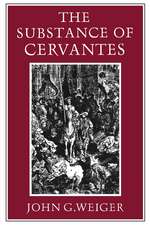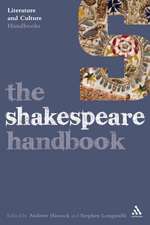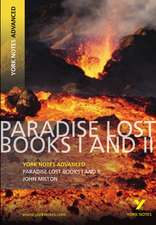Reading Class through Shakespeare, Donne, and Milton
Autor Christopher Warleyen Limba Engleză Hardback – 22 ian 2014
| Toate formatele și edițiile | Preț | Express |
|---|---|---|
| Paperback (1) | 281.30 lei 6-8 săpt. | |
| Cambridge University Press – 25 oct 2017 | 281.30 lei 6-8 săpt. | |
| Hardback (1) | 692.50 lei 6-8 săpt. | |
| Cambridge University Press – 22 ian 2014 | 692.50 lei 6-8 săpt. |
Preț: 692.50 lei
Preț vechi: 778.08 lei
-11% Nou
Puncte Express: 1039
Preț estimativ în valută:
132.51€ • 138.08$ • 109.72£
132.51€ • 138.08$ • 109.72£
Carte tipărită la comandă
Livrare economică 03-17 aprilie
Preluare comenzi: 021 569.72.76
Specificații
ISBN-13: 9781107052925
ISBN-10: 1107052920
Pagini: 220
Ilustrații: 2 b/w illus.
Dimensiuni: 14 x 229 x 152 mm
Greutate: 0.48 kg
Ediția:New.
Editura: Cambridge University Press
Colecția Cambridge University Press
Locul publicării:New York, United States
ISBN-10: 1107052920
Pagini: 220
Ilustrații: 2 b/w illus.
Dimensiuni: 14 x 229 x 152 mm
Greutate: 0.48 kg
Ediția:New.
Editura: Cambridge University Press
Colecția Cambridge University Press
Locul publicării:New York, United States
Cuprins
1. Of the fickle inequality that is between us; 2. The fickle fee-simple; 3. Just Horatio; 4. Ideal Donne; 5. Virtuoso Donne; 6. Uncouth Milton, part one; 7. Uncouth Milton, part two.
Recenzii
'… sensitive and magisterial at the same time, braided with past scholarship and yet original, it gives me a shiver when I absorb Warley's unselfconscious claims for the power of literature.' Roland Greene, Studies in English Literature 1500–1900
'Working through this superb monograph, one has the impression of being in the classroom before a deeply skilled teacher of literary history and criticism. Chapter by chapter Warley does what such teachers do best: he leads us with efficiency and grace to what is central in a selection of texts … the book's intellectual demands and critical insights are consistently illuminating.' Jeffrey Todd Knight, Modern Language Quarterly
'I am full of admiration for the project of this highly intelligent book. Warley reads class in the fabric of the texts, not outside them or in parallel, nonfictional genres. The works themselves are bearers of history and participate in the definitions and redefinitions that both mark and make change … This is in every respect a book to reckon with.' Catherine Belsey, Renaissance Quarterly
'How do I love this project? Let me count the ways … Warley has produced an important book, one well worth thinking about, whatever your theoretical or critical investments.' Crystal Bartolovitch, Shakespeare Studies
'Warley provides a rare example of how rich and challenging the language of class can be in renaissance texts.' Joel Swann, Studies in Theatre and Performance
'Working through this superb monograph, one has the impression of being in the classroom before a deeply skilled teacher of literary history and criticism. Chapter by chapter Warley does what such teachers do best: he leads us with efficiency and grace to what is central in a selection of texts … the book's intellectual demands and critical insights are consistently illuminating.' Jeffrey Todd Knight, Modern Language Quarterly
'I am full of admiration for the project of this highly intelligent book. Warley reads class in the fabric of the texts, not outside them or in parallel, nonfictional genres. The works themselves are bearers of history and participate in the definitions and redefinitions that both mark and make change … This is in every respect a book to reckon with.' Catherine Belsey, Renaissance Quarterly
'How do I love this project? Let me count the ways … Warley has produced an important book, one well worth thinking about, whatever your theoretical or critical investments.' Crystal Bartolovitch, Shakespeare Studies
'Warley provides a rare example of how rich and challenging the language of class can be in renaissance texts.' Joel Swann, Studies in Theatre and Performance
Notă biografică
Descriere
Through detailed readings of six canonical Renaissance works, this book shows the unique ability of literary criticism to describe class.
